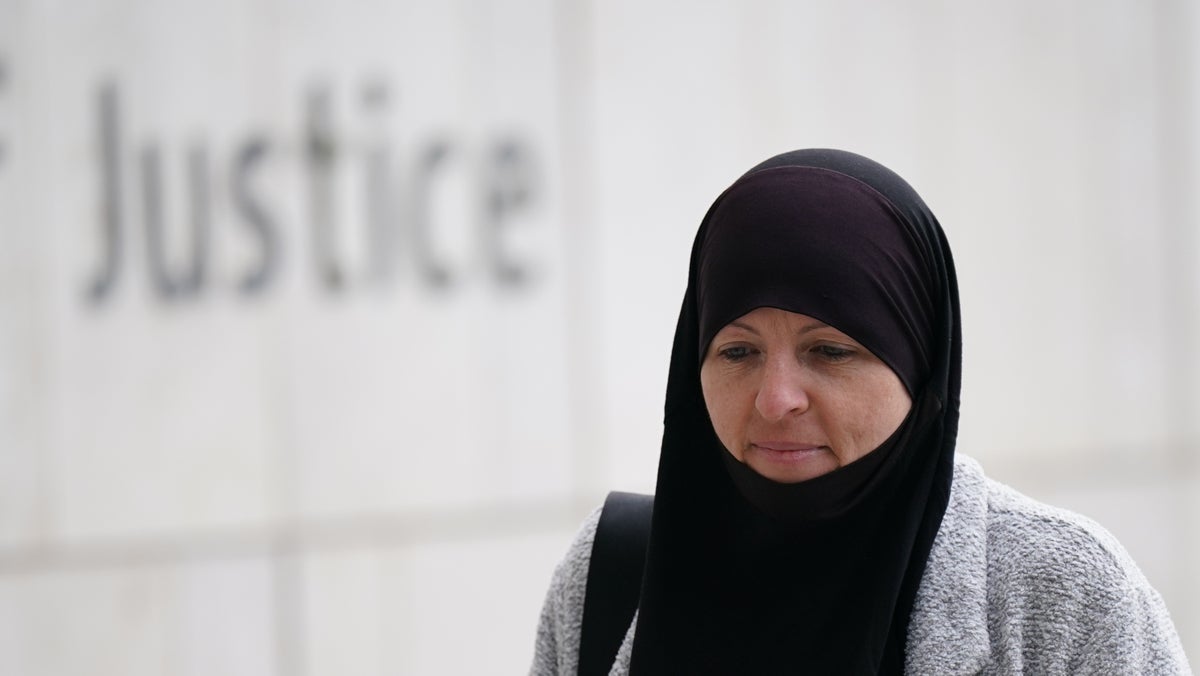
A former Irish soldier has been found guilty of membership of the so-called Islamic State (IS) terror group.
Ex-Defence Forces member Lisa Smith, 40, was acquitted of a separate charge of financing terrorism after a nine-week trial at Dublin’s non-jury Special Criminal Court.
Smith, a convert to Islam, travelled to Syria after terrorist leader Abu Bakr al-Baghdadi called on Muslims to travel to the country.
The Co Louth woman had pleaded not guilty to charges of membership of IS and providing funds to benefit the group.
Smith, from Dundalk, wiped away tears as the guilty verdict of the three-judge court was read out by judge Mr Justice Tony Hunt on Monday.
She was granted bail ahead of sentencing.

Acquitting her of the financing terrorism charge, Justice Hunt said it could not be proved beyond reasonable doubt that when she sent 800 euro to a man in 2015 it was specifically for the purpose of supporting the IS group.
In his judgment on Monday, Justice Hunt, who sat as part of the three-judge, non-jury court, said there was “sufficient ambiguity” over why the money was sent, highlighting it could have potentially been for charitable or humanitarian reasons.
The judge went through detailed evidence from the lengthy case and stated the prosecution had established beyond reasonable doubt that Ms Smith took up membership of IS when she crossed the border into Syria in October 2015.
He told the court that Ms Smith’s online communications with various people showed that “her eyes were wide open” to the situation in the land to which she “fervently wished” to return.
The court was told she travelled to Syria after terrorist leader Abu Bakr al-Baghdadi called on all Muslims to travel to the so-called Islamic State.
Justice Hunt said Ms Smith pledged allegiance to the organisation which al-Baghdadi headed up and that she knew the organisation was unlawful, and that it was not conventional or religious.
Justice Hunt also said her decision to travel to Syria because of religion or religious beliefs were “irrelevant” because holding a religious belief, “no matter how sincerely held”, is not a defence if the conduct is of a criminal nature.
He also said supporters of the IS caliphate were “very isolated” and not accepted by Muslims, and that Muslims were generally repelled by the violent acts adopted by the group to impose their ideology.
He said Ms Smith’s devotion to IS was clear from her social media interactions and comments, and that she travelled to the Syrian border with a one-way ticket.

“In her circumstances, armed with her extensive previous knowledge and experience, Ms Smith effectively took up membership of Islamic State when she crossed the border from Turkey in 2015 and took up residence in Syria under the aegis of the Islamic State organisation, and she did nothing thereafter to indicate that she had ceased to adhere to it,” Justice Hunt said.
“On the contrary, her actions and words indicate that her adherence continued until the fall of Baghuz.
He said that context “was everything”, adding that the court took into account subsequent events.
The court also rejected her suggestion that her reason for travelling to Syria was due to a speedy marriage or as a result of pressure.
The court accepted evidence from a witness that Ms Smith was “excited and enthused” about going to Syria.
He said there was no pressure from anyone else to travel, that she had an interest in martyrdom, and that she rejected the pleas of her former husband and family not to travel to Syria.
The court was also told that what was happening in Syria was known to Ms Smith, that she conducted research and had extensive knowledge of what awaited her there.
He said she had a particular interest in living in the Islamic State, and to live under sharia law.
He also said she came to her conclusion to move there, that she was well informed about the terrorist organisation and knew “full well” of the specific techniques used to enforce such laws under which she wanted to live.
He rejected the possibility that her conduct “simply amounted to innocent nation building” arising as a matter of religious belief or compulsion.
He also said Ms Smith attempted to “obscure” her connection with IS member John Georgelas and to IS, and that her explanations to gardai about her time in Syria were also “partial and self-serving”.
“Her knowledge of and interest in the development of the Islamic State, the nature of the people with whom she chose and continued to associate and the nature and extent of her online communications and her conduct and travel in the real world totally undermine her assertions of simple innocent nation building and religious compulsion,” he added.
“The purpose of her travel to and residence in Syria was the consummation of her burgeoning relationship with the Islamic State organisation and a cross-section of its other adherents.
“It represents overt conduct conclusively cementing her membership of the organisation.”
The former soldier was bailed ahead of a sentencing hearing on Monday July 11.







